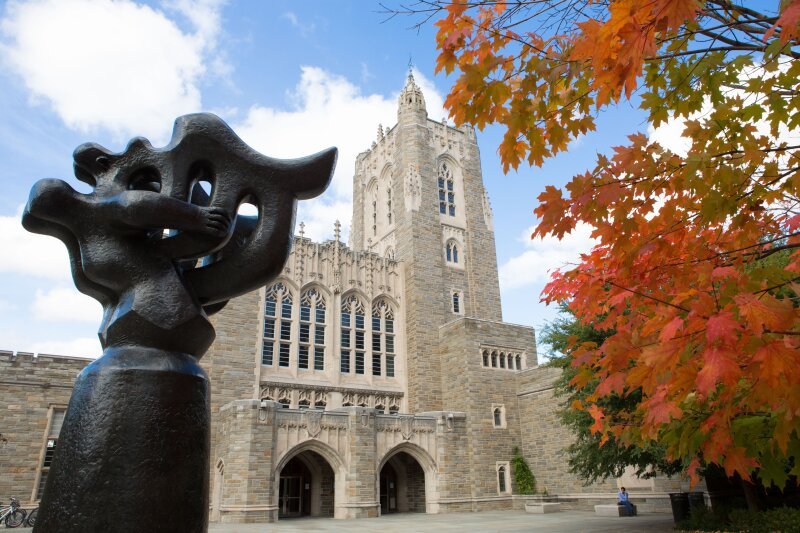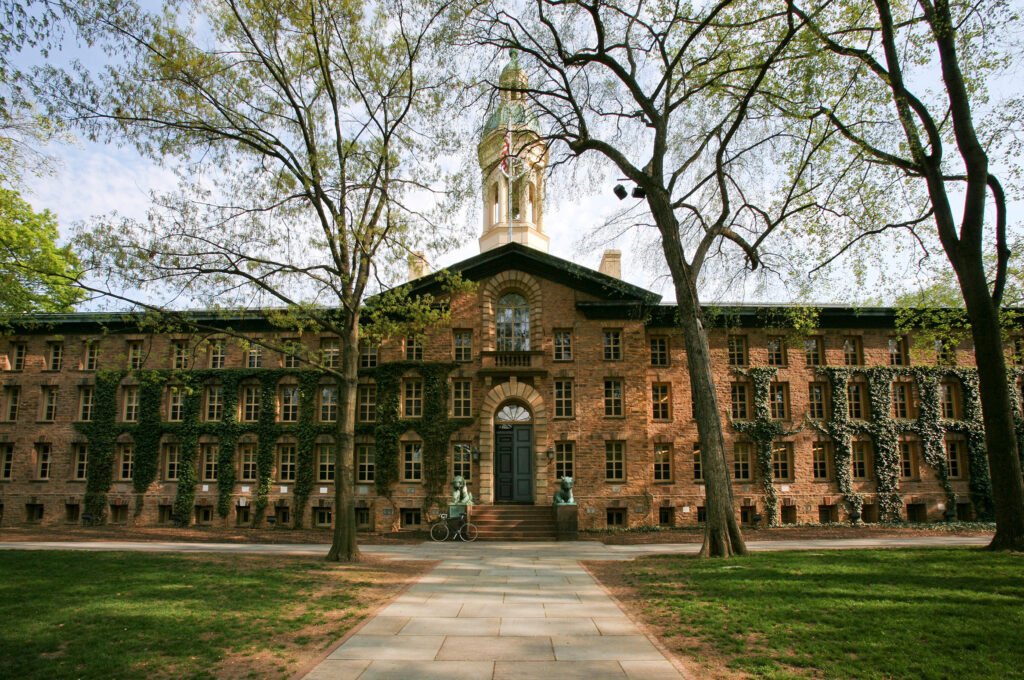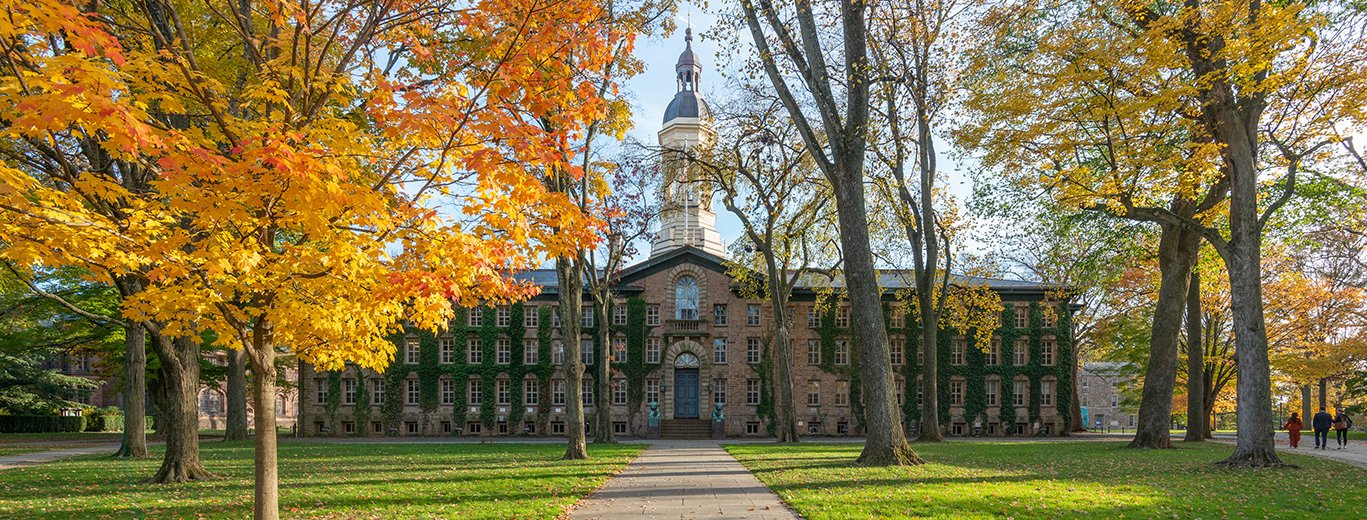Princeton University, established in 1746 as the College of New Jersey, stands as one of the oldest and most prestigious academic institutions in the United States. Located in the charming town of Princeton, New Jersey, the university has long been a symbol of academic excellence, with a rich history and an enduring commitment to shaping the minds of future leaders across the globe. It officially became known as Princeton University in 1896, adopting the name of the town where it resides, and later expanded its reach by establishing its graduate school in 1900.
Commitment to Education and Campus Life
Princeton University is a proud member of the Ivy League, a group of eight prestigious universities in the northeastern U.S., known for their rigorous academics and prominent faculty. At Princeton, the commitment to education goes beyond the classroom. A hallmark of the university’s undergraduate experience is the guarantee of on-campus housing for all students for all four years. Nearly 98% of Princeton’s undergraduate students live on campus, ensuring that students are fully immersed in the academic and social life of the university. This level of residential commitment creates a tight-knit campus community where students, faculty, and staff are consistently engaged in the intellectual and social life of the university.
The university’s student body is relatively small, with fewer than 10,000 students, making it one of the smaller Ivy League institutions in terms of enrollment. This allows for a more personalized educational experience, where students can work closely with professors and gain the benefit of small class sizes. Approximately 12% of Princeton’s students come from outside the United States, contributing to a global perspective within the student body and encouraging cross-cultural exchange both inside and outside the classroom.

World-Class Research and Nobel-Winning Faculty
Princeton is not only renowned for its commitment to undergraduate education but also for its cutting-edge research. With a strong focus on innovation, the university has been home to some of the most brilliant minds in science, economics, and the humanities. More than 40 Nobel laureates have been associated with Princeton, including faculty members and alumni. The university boasts an impressive list of Nobel Prize winners in various fields, including chemistry, economics, physics, and peace.
Among Princeton’s current faculty, there are several Nobel laureates, such as chemists Tomas Lindahl and Osamu Shimomura, economists Paul Krugman and Angus Deaton, and physicists Arthur McDonald and David Gross. These individuals represent the pinnacle of academic and research excellence, helping to maintain Princeton’s global reputation as a leader in scientific and academic research.
The university also counts many notable alumni who have made significant contributions in a wide array of fields. Among these are physicists like Richard Feynman and Robert Hofstadter, both of whom played key roles in advancing theoretical physics. In chemistry, alumni like Richard Smalley and Edwin McMillan have helped shape the course of scientific research. Princeton also claims two former U.S. Presidents, James Madison and Woodrow Wilson, among its distinguished alumni. More recently, celebrities such as former First Lady Michelle Obama, actors Jimmy Stewart and Brooke Shields, Amazon founder Jeff Bezos, and astronaut Pete Conrad have graduated from the university.
Academic Excellence and Global Rankings
Princeton is consistently ranked among the top 10 universities in the world. The university is recognized for its academic rigor, outstanding research programs, and commitment to producing future leaders in various fields. In 2025, Princeton holds the prestigious 4th spot in the world rankings, underscoring its excellence in both teaching and research.
The university excels across a wide range of academic disciplines. In the 2025 rankings, Princeton stands at 6th for Arts and Humanities, tied for 6th in Computer Science, and 8th in Engineering. Princeton is also highly regarded in the life sciences, ranked 7th in 2025, and in the physical sciences, where it holds the 5th position. In the field of psychology, Princeton takes the 3rd spot, while its performance in social sciences ranks 5th. These rankings reflect Princeton’s strength in both the breadth and depth of its academic offerings, ensuring that students have access to top-tier education and resources in nearly every area of study.

Iconic Campus and Distinguished Architecture
Princeton’s campus is as iconic as the university itself. Spanning 500 acres, the university’s campus is a blend of history, tradition, and cutting-edge modernity. The campus is home to approximately 180 buildings, including a number of notable landmarks that define the university’s aesthetic. Among the most famous architectural designs is the Lewis Library, created by world-renowned architect Frank Gehry. This library houses much of the university’s science collections and serves as a symbol of Princeton’s commitment to innovation in both education and architecture.
In addition to the Lewis Library, the McCarter Theatre Center is another standout feature of the campus. A renowned cultural hub, the theater is known for its high-quality performances and is the recipient of a Tony Award for Best U.S. Regional Theatre. These and other architectural landmarks create a vibrant, beautiful environment where students can study, work, and socialize.
Princeton’s campus also features 10 libraries that together house more than 14 million items in their collections. These libraries provide students and faculty with an invaluable resource for research across a wide range of disciplines. With its stunning gothic architecture and well-maintained green spaces, Princeton’s campus is often described as one of the most beautiful in the world, attracting over 800,000 visitors each year.
Community and Surrounding Area
Princeton University is not only a hub for academics but also for cultural and community life. The surrounding town of Princeton, with a population of about 30,000, is known for its scenic streets, diverse dining and shopping options, and public parks. The town complements the university’s academic environment by offering a quiet, charming atmosphere, while still being close to major urban centers. The university and town enjoy a symbiotic relationship, with the town benefiting from the cultural and economic contributions of the university, while students enjoy a supportive, welcoming community.
Princeton’s location is also highly convenient. Situated roughly halfway between New York City and Philadelphia, it provides students with easy access to two of the country’s most vibrant cities. The “Dinky,” a shuttle train, connects the campus to both cities in under an hour, making it simple for students to attend events or take advantage of opportunities in either city. The university even subsidizes student trips to concerts, plays, and sports activities in New York and Philadelphia, ensuring students have access to a wide range of extracurricular experiences.
Key Student Demographics and Figures
Princeton University is known for its diverse and dynamic student body. As of the 2025 academic year, 23% of Princeton’s students are international, which helps foster an atmosphere of global collaboration and learning. The university also strives to maintain a balanced gender ratio, with 47% of its students being female and 53% male.
The student-to-staff ratio at Princeton is 7.8, allowing for a high level of personalized attention and mentoring. With a total of 8,378 students, Princeton remains a relatively small university, which ensures that students have access to a close-knit academic community, where collaboration and interaction with professors and peers are emphasized.
Conclusion
Princeton University stands as a beacon of academic excellence, with its rich history, renowned faculty, outstanding research, and beautiful campus. As a top-tier Ivy League institution, Princeton continues to attract the brightest minds from around the world, offering a comprehensive and well-rounded education that prepares students for success in a wide range of fields. From its commitment to undergraduate education to its world-class research programs and stunning campus, Princeton remains a leader in higher education, shaping the future of students for generations to come.
